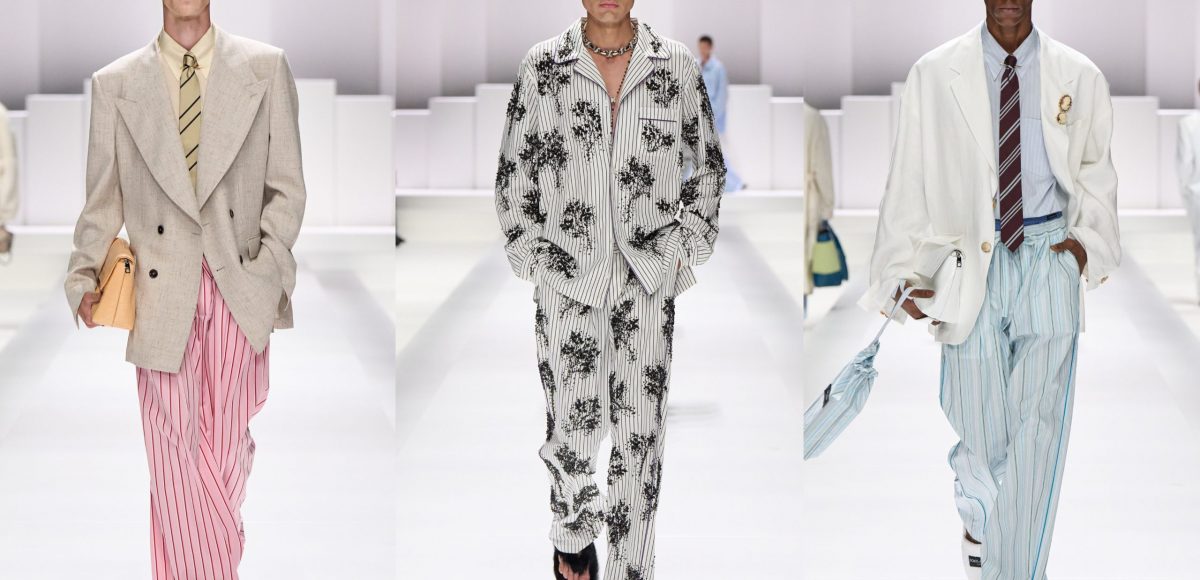Find Your Fashion Fit
How to Choose the Right Fashion Course After 12th (Or Later!) You know who you are! You’re the one who’s been doodling dresses in the margins of notebooks while pretending to pay attention in class. The one who watches fashion weeks not just for the celebrities in the front row, […]
Milan Men’s Fashion Week 2025 – Day 2 Highlights
Day 2 of Milan Men’s Fashion Week 2025 unfolded as a celebration of refined craftsmanship, quiet luxury, outerwear innovation, and a growing emphasis on sustainability and wearable elegance. Each designer brought forward not just clothing—but a point of view. From architectural tailoring to tactile minimalism and futuristic function, the showcases […]
Milan Men’s Fashion Week 2025 – Day 1 Highlights
Day 1 of Milan Men’s Fashion Week 2025 kicked off with an eclectic mix of structured streetwear, timeless textures, and reinventions of luxury. Representing a global perspective on design education, at the International College of Fashion (ICF), where we closely observe and integrate such showcases into our pedagogy. From experimental […]
Why is a Career in Fashion More Than Just Designing Clothes?
The fashion industry is often perceived as a glamorous world filled with runway shows, high-end designers, and stunning garments. However, a career in fashion encompasses much more than just the act of designing clothes. It involves a myriad of roles, skills, and knowledge that contribute to the overall ecosystem of fashion. This blog aims to explore the […]
Why Choosing the Right College of Fashion is Key to Success in the Indian Fashion Industry
Dreaming of seeing your designs on the runway or shaping the next big trend in Indian fashion? The journey to a successful fashion career is thrilling, but the path you choose early on, particularly where you get your education, significantly impacts your trajectory. Choosing the right college of fashion isn’t […]
Career Paths in Fashion Designing: From Design to Entrepreneurship
Fashion designing is an exciting and dynamic field that offers a wide range of career opportunities for creative individuals. From sketching designs to launching your own brand, the journey from aspiring designer to successful entrepreneur is filled with challenges and rewards. Let’s explore the various career paths available in fashion […]
The Role of Internships in Building a Fashion Design Career
Aspiring fashion designers often dream of seeing their creations on runways and in high-end boutiques. However, the path to a successful career in fashion design is paved with more than just creativity and talent. One of the most crucial steppingstones in this journey is the internship experience. Internships play a […]
Why Choose Fashion Designing as a Career in New India?
India’s fashion landscape has undergone a remarkable transformation in recent years, reflecting the country’s rapid modernization and evolving cultural identity. As the world’s fastest-growing major economy, India has become a hotbed of creativity and innovation in the fashion industry. This dynamic environment presents exciting opportunities for aspiring fashion designers to […]
Explore Various Career Options for Graduates in Fashion Designing
The fashion industry offers a diverse array of exciting career opportunities for those passionate about style and design. From creating cutting-edge garments to shaping trends and influencing consumer choices, the world of fashion design presents numerous paths for creative and ambitious individuals to make their mark. Fashion Designing: Career Paths […]
Career in Fashion Designing: What to Expect and How to Prepare
Path to Becoming a Fashion Designer Embarking on a self-taught journey in fashion design presents an alternative to the conventional route of formal education. This path allows for flexibility and the freedom to tailor your learning experience according to your personal interests and pace. It’s an empowering choice for those […]











